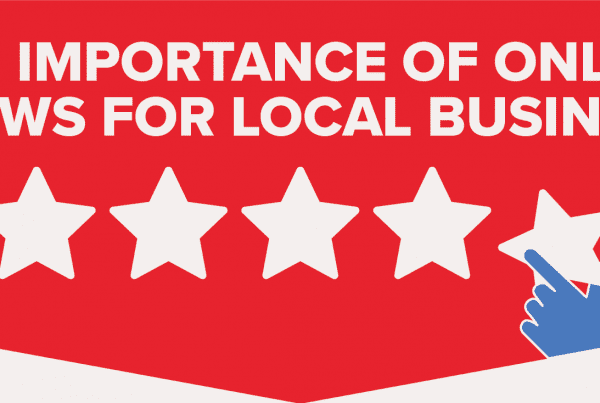As a business owner, you may believe you’ve done your due diligence in shaking all the right hands around town. People know your face and the quality your product offers. Most business models rely, at least in part, on a strategy to increase your brand recognition and personal reputation.
But how can you reach all the people in your community that you haven’t met yet? Maybe you’re the ideal solution to their problems, but how can they know you’re an option, let alone trust you?
The answer is to commit to an online reputation management plan, in addition to all those hands you shake.

So, what is reputation management?
In essence, a reputation management plan helps build trust and demonstrate your business’ competency in the eyes of your community. An all-inclusive strategy includes ensuring that your company’s information is correct and up-to-date in all web locations, while generating and managing online reviews to shed positive light on your company.
Does my online reputation really matter?
Simply put, yes. The truth is, today’s buyers need social proof. That is to say, your prospective customers need to know that people like them have had a positive experience with you before they make a purchase. In fact, 88% of consumers say that they trust online reviews as much as personal recommendations.
Here is a hypothetical thought experiment that demonstrates the importance of a solid online reputation.
A potential buyer is trying to solve a problem related to her business. In her community, there are two solutions provided by Company X and Company Y. While researching which product to buy, she comes across this information on the two companies:
Company X: has an average rating of 4.5 out of 5 stars, averaged from over 500 reviews on multiple review sites. The few negative reviews are responded to by a representative from Company X with empathy and a commitment to bettering their experience.
Company Y: has a rating of 2 out of 5 stars, averaged from just 3 reviews on one review site. No one at Company Y has ever responded to any of the reviews.
A few factors might contribute to this buyer’s decision. Of course Company X has a higher average rating, but star ratings aren’t the only things that matter—buyers also rely on a high volume of reviews to help validate their purchase decisions.
High review volume helps increase trust in the average review rating because it demonstrates that the data is based off a meaningful sample size. All things considered, this potential buyer is probably more likely to contact Company X based on the validity of their online presence.

One of our clients, Hired Killers Pest Control, does an excellent job managing their online reputation, as seen on their Google My Business profile.
The data doesn’t stop there. 8 out of every 10 consumers trust product reviews over product descriptions. So while you can (and should) spend time making sure that your website accurately reflects your company, the vast majority of your potential customers still prefer to cross-check what you claim with other buyers’ experiences.
Furthermore, buyers are already 70% finished with the buying process before they contact a vendor directly. Some companies never get the chance to talk to these prospects personally before they’ve already made up their mind. It’s imperative that your company’s reputation assures prospects that you’re worth picking up the phone for.
Am I on my own when it comes to managing my online reputation?
No. There are a couple of very helpful online tools that can help get your strategy off the ground and maintain it going forward.
First, a listing management tool crawls the web for any and every place which displays information about your business. You may be surprised at how inaccurate some of those listings are. Continuity of these details is an important starting place for your reputation management strategy.
In order to keep a close watch on all reviews that are organically generated by the public about your company, they must be organized and easily accessible. Consider an online review management tool that will alert you every time a review is posted. This tool can help you aggregate all your online reviews in one place so you can easily respond to them.
 Finally, it’s important to make sure you’re actually getting reviews if you want to improve your online reputation. A review acquisition tool can help you send targeted emails to your clients to encourage them to review your business online.
Finally, it’s important to make sure you’re actually getting reviews if you want to improve your online reputation. A review acquisition tool can help you send targeted emails to your clients to encourage them to review your business online.
If a user responds to the email with a negative review, some tools will then enact a one-on-one response so you have the opportunity to address the user privately before the negative review is published online.
By asking the right people at the right time for their opinions of your business, you can generate more social proof that you’re the expert solution in your community. You also guarantee that you’re providing the best possible service and can address issues before they become too serious.
Start the Conversation
Still feel like you need a little help managing your online reputation?


